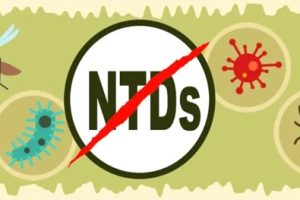
Civil Society Organizations, (CSOs) are crucial partners to ensure long-term development. By sharing responsibilities with the government, the organizations contribute substantially to poverty reduction, promoting inclusive development to a wider group in society, and enhancing their participation in governance, right-based advocacy and democratic processes.
Owing to this, nowadays, CSOs are increasingly becoming important actors contributing meaningfully to the social, economic, and political development of their respective countries.
In Ethiopia, following the political reforms introduced in 2018, Ethiopia’s civil society organizations are working to carry out the responsibilities and play their part in the country’s development, and democratization process for the maximum benefit of the public though there are limitations.
Following the various initiatives and activities carried out over the years, the number of civil society organizations in Ethiopia is increasing from time to time, and their constructive roles in the country’s holistic development is augmenting.
The country is also implementing reforms within CSOs targeting to enhance the positive impacts of civil society organizations and ensure that both the nation and its people gain the desired benefits from those organizations.
Engaging in various areas such as promoting lasting peace, bringing in development and fairness; and providing humanitarian support for those who are in need of relief aid the most among others, CSOs are executing a number of important activities.
Recently, the Ethiopian Civil Society Organizations Council (ECSOC), in collaboration with the Authority for Civil Society Organizations (ACSO), announced a plan to organize an annual Civil Society Organizations Week (CSOs Week – 2024).
ACSO’s Deputy Director, Fasikaw Molla, stated that the upcoming event, CSOs Week-2024, aims to promote the implementation of CSOs, create connections, discuss peace, address humanitarian needs, and involve the public in overall development activities. As of now, there are over 5,200 legally registered CSOs in the country, of which the majority are local organizations.
“Even though the number and the roles of CSOs are increasing, a lot remains to be done in terms of meeting the demands of the country and its people. This demonstrates that CSOs should work more by joining hands with other relevant bodies to address the challenges of the country,” he added.
According to him, CSOs should work hand in hand with the government, stakeholders, media partners, the private sector, and the like to realize their apparitions and play a role in the efforts exerted to realize a prosperous Ethiopia in the forthcoming years.
He also revealed a plan that the 4th CSOs Week is set to be celebrated from December 6-8, 2024, under the theme “Renew the Promise for an Enduring Peace and Equitable Development” At the program, aside from holding a panel discussion; over 80 CSOs will display their activities through exhibitions.
Over the past four years, reforms have been implemented on CSOs and 3,300 new organizations have been registered owing to the enabling environment created for them. The reforms are expected to bring about a meaningful impact on building the nation, and the support and monitoring measures will be further strengthened, he added.
Fasikaw also called upon international civil service organizations to reinforce collaboration and support local organizations by sharing experience, transferring knowledge and skills, providing financial assistance and the like resources that would play a crucial role in ensuring a common goal- ensuring lasting peace, facilitating development, and bridging the skills gap, which is the country’s ambition towards holistic development in the years to come.
In recent years, CSOs have provided essential humanitarian support to vulnerable communities affected by conflicts in the northern part of the country and drought in some areas. Besides, they are playing a critical role in backing the rehabilitation efforts carried out targeting at restoring affected areas to former status. However, challenges including lack of adequate finance, skills, and similar limitations continue to hinder the activities and the expected outcomes. Therefore, creating an enabling environment through supportive reforms would play a vital role in unleashing the full potential of CSOs, the Deputy Director remarked.
Mentioning the future focus areas of CSOs, Fasikaw underlined the significance of cooperation and working closely with the Council of the CSOs and other related institutions to bridge the gaps and ensure the effective provision of support and development thereby creating a common understanding in building the nation
In an interview with The Ethiopian Herald, Tamra for Social Development Organization (TSD Executive Director Biruk Yergalem, said that his organization is working focusing on fighting HIV through enhancing intervention and Community-Led Management (CLM).
According to him, some 14 organizations will jointly work with the CLM project, which will be implemented in 12 states and two cities across the country. This means that the CLM project will be implemented in 84 districts and 103 health institutions, targeting to combat the spread of HIV/AIDS in the coming one year in the areas. As a result, it is expected to benefit over 47,000 targeted groups, particularly individuals who have been receiving antiretroviral therapy (ART) by improving the healthcare services.
CSOs Council Director General, Terefe Degeta on his part said that CSOs have been working closely with the Ethiopian National Dialogue (END) and other institutions to promote lasting peace, ensuring national consensus and supporting reconciliation as well. Besides, CSOs are involved in building schools, conflict resolution, addressing health issues, the provision of humanitarian support, and so on.
The CSOs have multilayered responsibilities in building democracy and creating a modern society through providing the necessary support. According to him, if a country aspires to establish a strong relationship between the government and its people; and create a robust democratic system, it needs to have strong CSOs.
Above all, CSOs contribute significantly to promoting the overall development of a certain country, particularly in areas where governmental reach is constrained for various reasons.
In actual fact, the role SCOs play in catalyzing any country’s development effort and benefitting communities is immense. However, this will happen when a conducive environment that enables them to fully exercise their mandate is created and they work in accordance with their registered objectives.
According to the web page of the Ethiopian Civil Society Organization Council, ECSOC is a statutory organization established under the Organizations of Civil Societies Proclamation No. 1113/2019.
The Council operates as a wholly independent institution with a mandate to represent and coordinate the CSO sector in Ethiopia. The Council is also an important catalyst for establishing and maintaining an enabling environment for the inclusive participation and operation of non-state actors, allowing them to engage in any lawful activity, including democracy, human rights, elections, peace building, among others.
BY MESERET BEHAILU
THE ETHIOPIAN HERALD TUESDAY 3 DECEMBER 2024





